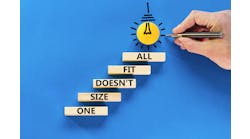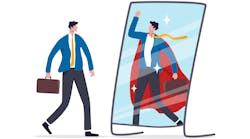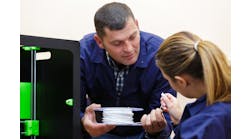Why the Political Turmoil?
We all want the same things.
I’m shocked by the polarization of the electorate. Actually, I’m shocked by people’s behavior: the intolerance of different opinions; vicious name-calling; physical violence at political rallies; and people’s cars being vandalized because of their bumper stickers. No, I’m not writing this because someone keyed my car’s paint; but someone did peel a sticker off my car while it was in a parking lot (I noticed immediately – it was the only spot on the back of my car not covered in road grime!).
I’ve tried to ignore our national bickering. I’ve even attempted to avoid it by not watching television, but somehow I keep hearing about it or reading about it anyway.
In the past couple of years I’ve seen headlines like these:
"Is America Dangerously Divided?" from CNN
"Polarization Is Dividing American Society, Not Just Politics" from The New York Times
"Divided We Still Stand — and Getting Used to It" from USA Today
When I have followed it; I feel like our politicians are fanning the flames of discontent (and I include with them media commentators and opinion-makers). I feel they are intentionally dividing us. They motivate our anger and hatred for each other with fear and envy and paranoia. I believe the politicians are profiting from our continued division. If we weren’t divided, who would need them? Will Durant, American philosopher and historian, observed, "The political machine triumphs because it is a united minority acting against a divided majority."
My purpose in writing this article is to ask everyone to notice how much we have in common. How we’re all motivated by the same things. Theodore Levitt, Harvard Business School professor, said, "One should not focus on the differences between people but look for commonality and similarity." I suspect he was lecturing Marketing students, but it’s good advice nevertheless. So, here’s my Top Ten list of the ways we’re all alike:
1. We all want peace.
2. We all want to feel safe (free from fear).
3. We all want the basics of survival (clean water, good food, and a comfortable home).
4. We all want good health.
5. We all want prosperity (freedom to do what we want; to pursue personal interests; to find happiness).
6. We all want friends (to feel accepted and enjoy a sense of belonging).
7. We all want love.
8. We all want to be respected.
9. We all want a sense of self-confidence.
10. We all want justice (everyone plays by the same rules).
And, I’d like to add that we want all of these things for our families and friends as well.
If we can remember our commonalities, perhaps we can be less judgmental, and get along. If we can ignore the politicians, and focus instead on our own power, then we can have all of the above.
What similar needs and desires among people do you see?





